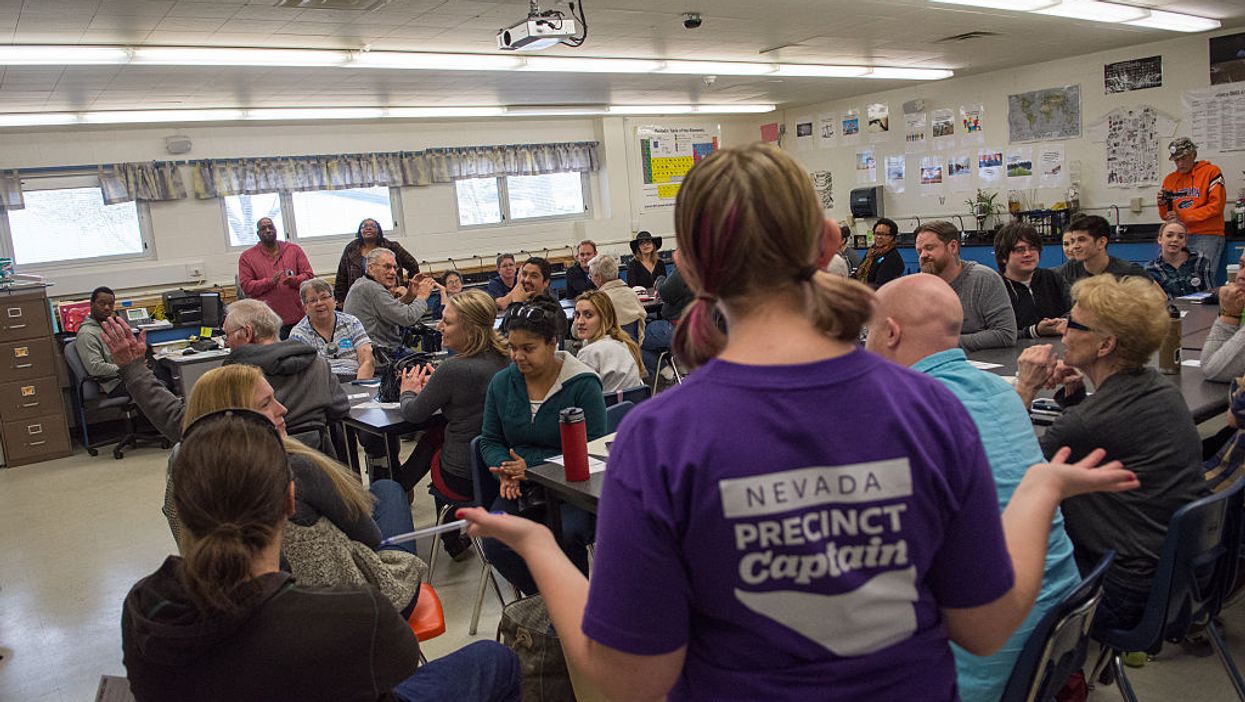The prospects for ranked-choice voting are uncertain in a handful of states that had shown momentum as the fall begins and the 2020 campaign shifts into a more intense gear.
Just days ago, the future looked brighter for one of the more revolutionary parts of the democracy reform agenda, which seeks in part to grow consensus-building and shrink polarization in politics: holding elections where voters list all the candidates they can live with in order of preference, with the winner often emerging as a person ranked close to the top on the most number of ballots.
The biggest potential setback since has come in Iowa, where Democrats hoped to couple a debut for ranked-choice voting in presidential elections with the rollout of online participation in the 2020 caucuses.
But last week national party leaders rejected the proposals from Iowa and Nevada to allow remote participation, concluding that concerns the fledgling systems could be hacked outweighed the desire to make it easier for people to participate.
Iowa, which had planned to allow its virtual caucus-goers to rank the Democratic field and assign a small share of delegates that way, now has less than two weeks to come up with an alternate way of testing ranked-choice voting that can meet Democratic National Committee approval. Or the party leaders may choose to scrap the idea.
One option is for Iowans to adopt the system in place in Nevada, where plans for early in-person voting using the ranked-choice method are likely to remain even though RCV has been scrapped in the virtual caucuses.
"We concur with the advice of the DNC's security experts that there is no tele-caucus system available that meets our standard of security and reliability given the scale needed for the Iowa and Nevada caucuses and the current cyber-security climate," read a joint statement Friday by DNC Chairman Tom Perez and the co-chairs of the party rules committee, Lorraine Miller and Jim Roosevelt.
Meanwhile, RCV advocates are waiting intently to see if Maine's Democratic governor, Janet Mills, will sign legislation to allow voters to rank candidates in the March presidential primary. The bill cleared the Democratic state Senate last week on a party-line vote, giving Mills until the end of the week to make a decision.
Maine is the first state to use RCV in statewide elections, including congressional races, but the governor is being lobbied heavily by both sides of the debate over whether the system should be expanded to the presidential nominating contests.
A group of Alaskans has initiated a petition to make their home the second with statewide RCV. But Republican Lt. Gov. Kevin Meyer, who has power over such matters, last week rejected the petitioners' call for a 2020 ballot initiative.
Meyer said the state's attorney general, Kevin Clarkson, recommended he decline to certify the initiative because it violates the requirement that such proposals be on a single subject. (The Alaska initiative also called for replacing the state's party-affiliated primary elections with a single statewide primary and changing the state's campaign finance laws to eliminate "dark money" contributions to political campaigns.)
Officials with Alaskans for Better Elections, the group behind the initiative, released a statement saying they disagree with Clarkson's opinion and are considering filing an appeal in court.




















Trump & Hegseth gave Mark Kelly a huge 2028 gift